
Alex Navarro is an editor at Giant Bomb, a drummer for NYHC outfit None Above All, and the guy who accidentally made that one Nicolas Cage cameo clip go viral earlier this year. He's on Twitter @alex_navarro.
2019 was a weird year. Some of that strangeness was personal in nature. I made some moves this year that changed up the flow of my life a bit, a flow that hadn't really been disturbed in a long while. I started drumming more regularly, even going to the trouble of joining a band and playing shows. I started reaching out to a few folks I hadn't talked to in a while, maybe partially out of guilt for my lack of communicativeness, and also out of a desire to try to be more outgoing than I usually am. I tried to be a little less terminally Online, to varying degrees of success.
I also did not play a great many video games this year. Or, more accurately, I tried a lot of video games, but few of them stuck. This is not me launching into a diatribe about how video games had a weak year, or whatever. I think we all know that's kinda bullshit. Yes, this is a reloading year for the industry as we await new hardware. The thing is, though, a reloading year in the modern era is still chock fucking full of good-ass games. There are too many games being made at any given moment for a "weak" year to feel genuinely weak anymore.
Instead, I realized about halfway through the year that my head was just not in this stuff. I tried many things people were excited about, but didn't latch onto them. This is somewhat of a roundabout way of saying that there are a number of games that probably belong on this list, but ultimately fell off because I just wasn't in the headspace to enjoy them. Devil May Cry 5 is exactly the kind of dumb fun action romp I would have enjoyed any other year, but got little out of in 2019. I can easily imagine a time in which Disco Elysium is a game I fall in love with, but the tone of it was entirely wrong for where I was at this year. I look at stuff like Slay the Spire and Observation and Pathologic 2 and know that somewhere down the road, I will play them, like them, and chastise myself for not digging into them sooner. I just wasn't there for them, or many other games like them, this year.
I don't have a tidy explanation for why my head was where it was except to say that depression is a hell of a thing, and it sometimes manifests in places where you would normally go to cope. Most of 2019 was me trudging through the muck of my own mind, looking for ways to push myself forward. I ended up finding those ways mostly outside of games, which is not a bad thing, but doesn't really lend itself toward pulling together a complete-feeling list of year-end gaming favorites.
Anyway, the point is this: I really liked all these games. I might have liked other games more had I felt different this year, but I didn't, and so these are the ones I went with. These are great games in their own right. Don't hold my lack of interest against them.
11. Untitled Goose Game / Wattam
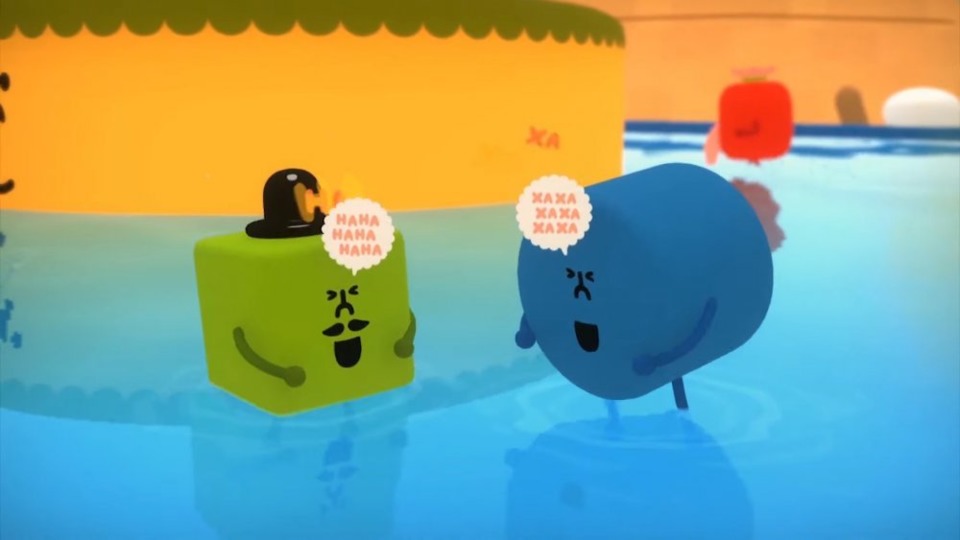
These two games occupy a similar space in my brain. Both are cheerful, whimsical little games that invite the player to explore their worlds to see what kind of silliness falls out of them. Both offer objectives that are ostensibly the point of the game, but also seem just as happy with you making your own brand of chaos in the margins. Both are very cute.
Where they differ is mostly in tone and intent. Wattam is a game about friendship and play and a childlike introduction to the things of the world. UGG is a game about a monstrous goose that inflicts suffering on humanity for reasons left to the player's interpretation. Where Wattam is about reconnecting people in a once-empty world--a strand game, if you will--UGG is about making people miserable, and having a good honk about it.

Both these games put a big, dumb smile on my face as I played them. Wattam's earnest love of interaction and play, and UGG's sociopathic menace of gentle villagers, both speak to me as a person. I am, at once, a friendly exploding mayor who loves to hold hands and summon trees who eat things and make meat fruit in order to return toilets to the world, and a vicious, honking, knife wielding, sandwich stealing creature of pure malignant instinct here to torment your every waking moment. These games are my dueling energies personified.
The next time you see me smile, wonder to yourself if you're seeing the mayor or the goose; the angel or the demon.
10. Void Bastards
Void Bastards combines two things I love: rummaging through abandoned spaces, and getting yelled at by Scottish people. That these two undeniably enjoyable experiences have been placed in a pleasingly weird shooter is all the better.
You spend your time in Void Bastards bouncing around a bad nebula where everyone is dead or mutated. You, however, are only slightly mutated and constantly on the verge of death, so it's up to you to rescue garbage from the decaying vessels littering the nebula for a corporate space computer that cheerfully hates you. The "you" in this case is an endless supply of space prisoners, who each come with a unique trait. Sometimes they are beneficial, sometimes they're a hindrance, sometimes you're just very tall.
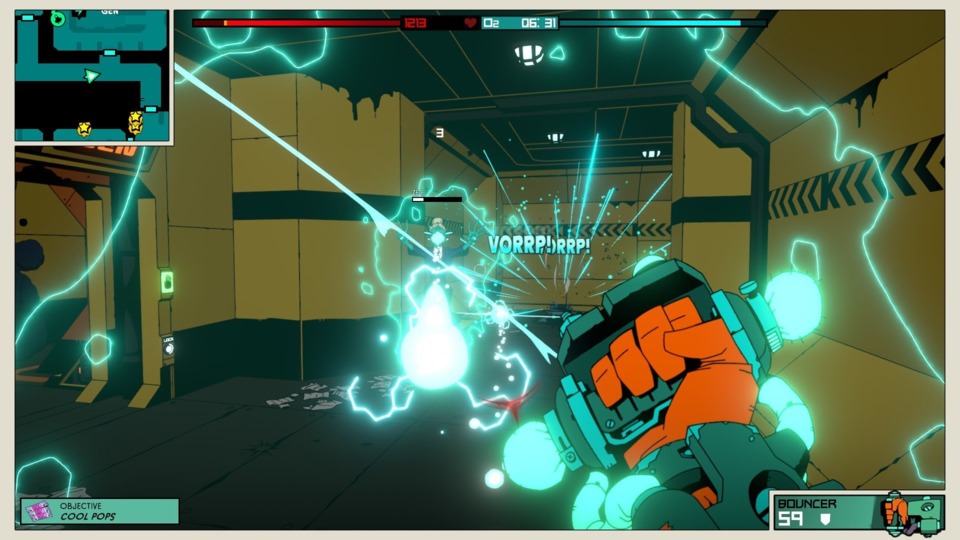
There's a grimy, belligerent charm to Void Bastards. It's not funny, exactly, but it's off-kilter in an agreeable way. The chipper British space computer and the extremely cranky and extremely Scottish space pirates are fun characters. And the runs are good. You mostly loot and collect a lot of the same food and ammo and junk from the same few ship environments, while murdering--or getting murdered by--the mutants along the way. This loop was compelling enough to keep me playing Void Bastards for most of 2019. That and all the Scottish yelling. Those two things, primarily.
9. Apex Legends
I feel like some people might have signaled the death knell for the battle royale genre a little prematurely. I'm mostly talking about me, but if any of you also did that, you should also feel bad.
Here's the thing: Battlegrounds, the battle royale I primarily played, is definitely not the hottest thing going anymore (but still fairly popular). That stopped right around the time it was bested by *checks notes* the most popular video game currently in operation. I don't play Fortnite, so I sometimes forget that it became video game McDonald's in a very short span of time. They even do movie tie-in promotions now.

Anyway, battle royale was a popular genre and still is. Respawn made a very good one of those this year that I, for the most part, enjoyed playing. The random matches where I left voice chat on weren't so great, but that's my fault for ever thinking that was a good idea. Besides, part of this game's beauty is the way it creates methods of communication that don't require you to endure a 16-year-old screaming slurs into your headset. I don't want to oversell this. I also encountered some very nice people playing Apex Legends. They just weren't the most memorable encounters I had.
Respawn does shootfeel and mobilityfeel better than most developers, and they do those things well here. They do a great job of splitting the difference between class-based shooters and Overwatch-style character action. I never felt especially compelled to pay for any of it, which I feel a little bad about. Is there like a tip jar I can just put a few bucks into? I don't want any of your various fake moneys or the things they can buy. No, not even the skins. Not even the skins!
8. Mortal Kombat 11
Mortal Kombat is old as hell, and still somehow reinventing itself after all these years. This latest trilogy of games has, in particular, been very much about the idea of reinvention itself. MK9 remixed the stories of the early games into a modern campaign, MKX introduced a new generation of fighters sprung from the loins of the original cast, and MK 11 makes the very concept of time into its Big Bad. No, really, you're fighting a TIME WIZARD, who is also maybe God, but not THE God? She's a god that made the other Mortal Kombat gods, but is maybe not the top tier of all gods. That part is unclear, but what is clear is that she's a TIME WIZARD named Kronika, and as someone who likes both aggressively stupid time travel nonsense and weed jokes, this is a perfect set-up.
MK 11 executes on that set-up incredibly well. One of the best things about these recent MK stories is that NetherRealm has really emphasized how much they like these characters. It's like how the Fast & Furious movies took the cardboard cutouts of characters they started with and turned them into people worth caring about over the course of the series. The writers seem to genuinely like these people a lot, and as a result I'm way more invested in the emotional journey of Johnny goddamn Cage than I ever should have been. I love these doofuses and their endless misadventures in grindhouse kung-fu mysticality. I just want them all to be happy, and not sliced in half. OK, sometimes I want them to be sliced in half.
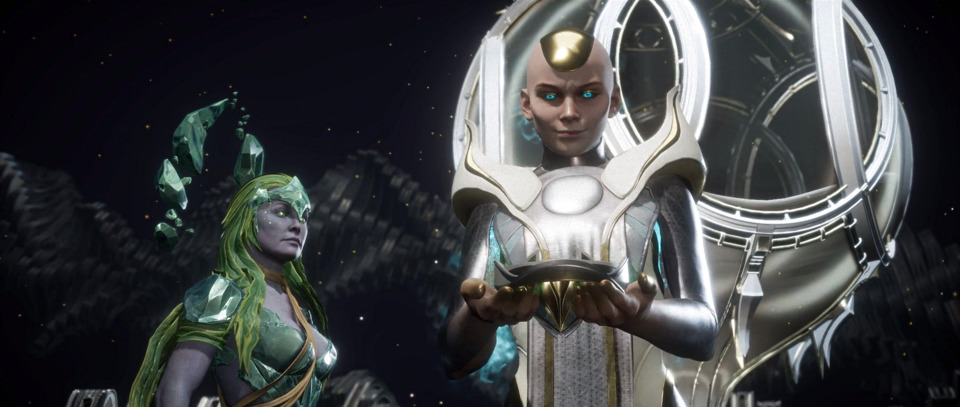
By the end of MK 11's excellent story campaign, the possibilities for the future are wide open. My hope is that the devs at NetherRealm take that opportunity not just to remake the story of Mortal Kombat again, but really ask themselves what is vital to making a Mortal Kombat game in the modern era. Don't be afraid to ask tough questions. Do all these characters still need to exist? Do we still need a long, meandering krypt adventure just so people can unlock stuff? Do we still need fatalities? Do we really need to invite Ronda Rousey back? The answer to all but the last one of those questions might be yes, but I say fuck around and find out. You've got a blank canvas to work with, and you've already proven you're amenable to doing wild shit with this franchise. Go nuts.
7. Hypnospace Outlaw
I'm of that particular age that is old enough to remember what life was like before consumer grade internet, yet just young enough to have spent several of my formative years planted in front of the family PC, chatting with likeminded social outcasts in rooms called things like "Teen Zone" and "Punk Chat," and building personal homepages that were less an act of personal expression than a cry for help. I spent a lot of time on the internet when that wasn't a thing that many kids did, and I saw the shape of the online world before it was remolded into the current hellscape in which we all reside.
This is all to say that I am hyperspecifically the target audience of Hypnospace Outlaw, a game in which you play a content moderator on a psychedelic vision of the late-'90s internet. Your job is mostly to go around and tick off violations for people stealing copyrighted material, harassing one another, and engaging in dark commerce. The game is simple, and mostly a delivery method for an expansive-feeling version of the web filled with strange personalities and chaotically designed tributes to their mundane personal interests.
Colin Spacetwinks wrote a great, exhaustive piece about Hypnospace in his top 10 list that I think captures my feelings on why Hypnospace is great not just as a delightful parody of old-ass internet, but also an effective story about the kinds of attitudes and malpractices that led to the innocence of that old subculture evolving into what we have now. I don't want to rewrite his piece, so I'll just suggest you read that when you get a chance.
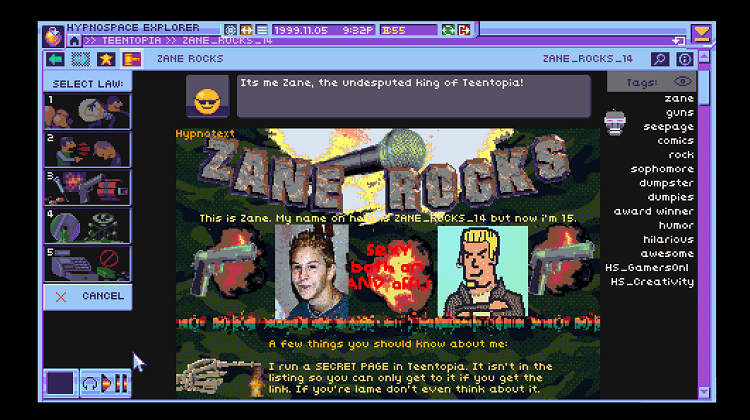
The only thing I'll add is that Hypnospace's warped version of the internet I grew up on hit me in a very particular way. I remember building my own personal homepage on Geocities or Angelfire or whatever, mostly piecing it together out of ideas and HTML code I'd stolen from other sites. I don't remember exactly why I felt I needed to build my own page, but my best guess is that it stemmed from the loneliness I was feeling at that point in my life. Homepages at that time were more like messages in a bottle you'd float onto the vast sea of the early internet. The odds of anyone outside your real life social circle finding you weren't great, unless you joined a million webrings and signed everyone's guestbook with a link--the late-'90s version of "check out my soundcloud." I did meet a few people through that page--god only knows how any of them found it, I imagine through some webring or another I "belonged" to--a couple of which are still good friends of mine. But mostly my homepage just kinda floated in relative obscurity, as most people's did.
This year, I got a random DM on twitter from someone I didn't recognize. She asked me about a page she'd come across years and years ago, and described a post that sounded like the kind of demented rambling mid-teens me would have likely spewed into a text editor. Turns out she'd seen my homepage, and somehow remembered it all these years later, when she'd noticed something I'd tweeted pass into her timeline. It was a simultaneously amazing and mortifying feeling, knowing someone I'd never encountered before had not only observed this thing I'd thrown out to the world as a weird computer teen, but remembered it literal decades later. While that page is entirely lost to time, there's something kind of wonderful--and maybe a little terrifying--knowing that it still exists in the mind of a few total strangers who happened to find my little island in the online ocean all those years ago. Scrolling through Hypnospace's fake internet, it was easy to imagine the people who made these pages, the feelings that drove them to do so, and how they might react to someone reminding them of those pages decades in the future.
6. Neo Cab
Neo Cab is a game about the gig economy. You are a human cab driver in a cyberpunk future where only corporate-backed A.I. does your job. You're scraping by on a meager amount of money while a megacorp does everything it can to make your vocation illegal. Your best friend in the city goes missing, possibly as a result of her involvement with anti-corporate forces. Everything in this world seems to be conspiring to ruin your life, in particular. And so you drive, both to survive, and to learn more about those conspiring forces.
This is a driving game in which you do not actually drive. Each in-game day is a routine of picking up passengers, conversing with them, and then moving on to the next job. Some of these passengers have info you need to further the main plot, some are just people who live in this same grim world you do. These conversations are what drive Neo Cab, and they are absolutely terrific.
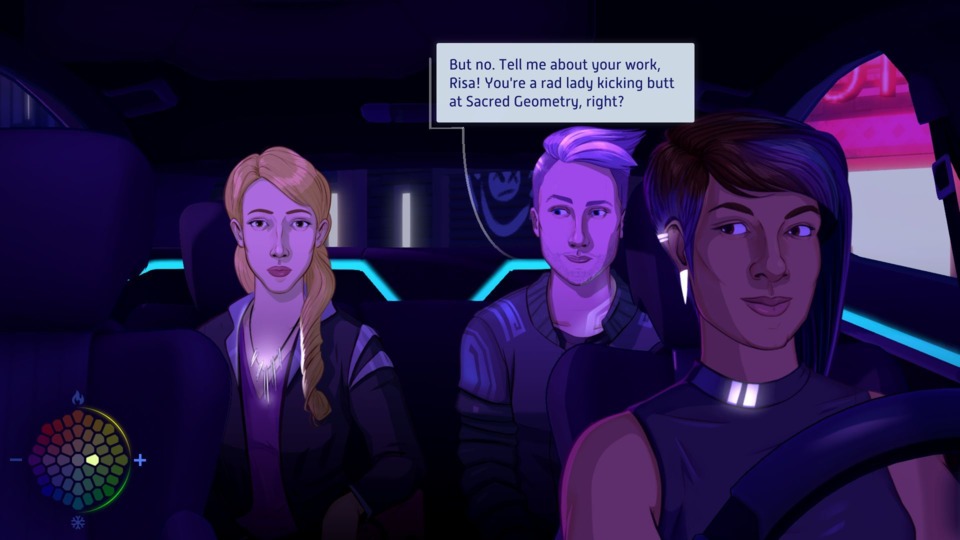
Every passenger I picked up in Neo Cab felt like a believable person. The writers have a keen understanding of both the technological wizardry of their future age, and how that technology would impact the people living in that world. You explore those lives through a format that reminds me a bit of the old HBO show Taxicab Confessions--albeit with a considerably less horny bent. These characters don't just feel like metaphors for one particular political stance or another. Their lives are relatable, and your character, Lina, makes a particularly good vehicular therapist. Though there's a bit of room for how you play her, she mostly exudes empathy and understanding in a world largely devoid of those sorts of things.
The main mystery is maybe in a bit too much of a hurry to wrap itself up, but that was never what drove me to keep playing Neo Cab anyway. It's the individual stories, the portraits of life in this neon-drenched city, that propelled me forward. I loved learning about these people, and immediately rebooted the game upon completion to dig into some of the passenger stories I'd missed the first time around. Fuck Capra, and All Hail the Pain Worm.
5. Outer Wilds
I had to fight to like Outer Wilds. It won me over eventually, but I did not go along quietly.
This is not something I blame the game for. This is more of a me thing. As I played Outer Wilds, I saw every bit of the wonder and amazement people had described to me before I gave it a shot. It was there in front of me, and for a good, long while, I was somehow not feeling it. The quirkiness of the ship controls and character movement were an early issue, but not an impediment to my enjoyment. I started filling out my board, poking at various corners of the solar system, acquiring clues and piecing together why I was looping through time and who the Nomai were and why anything was the way it was. It was all very interesting, but I wasn't really enjoying myself.
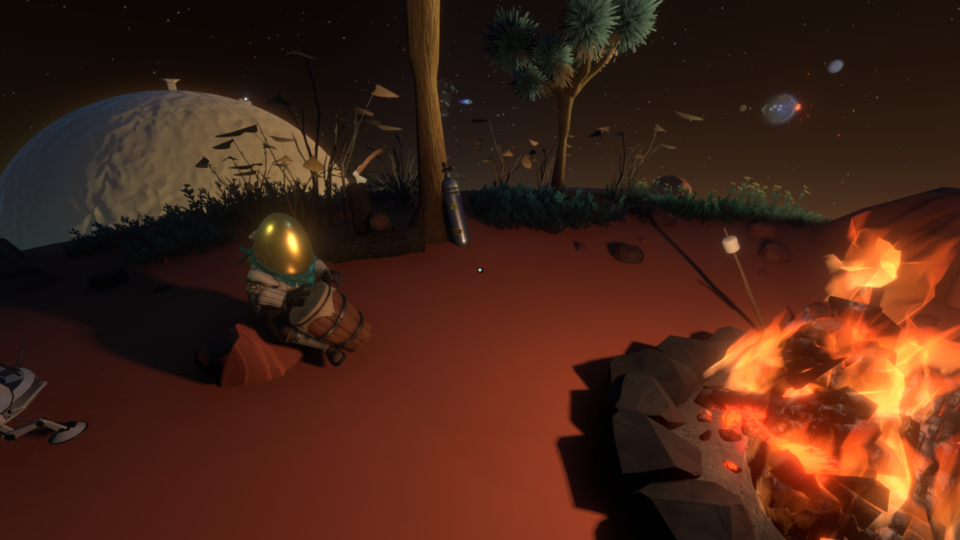
Eventually, I figured out what it was: I think I just don't like this kind of game that much. Not specifically the time loop thing, though I'm not Majora's Mask's biggest fan, either. It's the aimlessness of it, the very thing that's most impressive about the game. Outer Wilds is a game of breadcrumb trails. You can follow any of those trails in any order you please. There's tons to uncover and learn, and if you know the right sequence of events to trigger its conclusion, you could beat it in like 20 minutes. I think I'm coming to understand that having that much freedom in a game can feel overly daunting to me. It's a problem of patience, and of organization. I ran into a similar wall with Breath of the Wild. I couldn't get into that game's groove because it doesn't really have one. It'll keep track of certain things, but how you go about your business is largely on you. I think for my brain, and how it processes games, that can feel more stressful than enjoyable.
So why is this still so high on my list? Because I kept going. I pushed against my brain's dislike of what was going on here because I saw what everyone else sees in this game, and I was sufficiently impressed by it to fight against my own instincts. And I think it was worth it. The conclusion to Outer Wilds' journey is a genuinely beautiful culmination of all the work you put into solving it. It hits all the right notes.
I don't think I'm ever going to play Outer Wilds again, but I'm glad I stuck with it. I think it's the most impressive game that came out this year, even if it isn't my personal favorite.
4. Luigi's Mansion 3
I like dumbass Halloween shit. Doesn't matter if it's gory or goofy, gimme that spooky stuff, them ghosts and specters and whatnot.
Luigi's Mansion has always been a celebration of wacky spookiness. Luigi, Nintendo's avatar for the concept of fear, is exactly the right protagonist for a game where ghosts require busting and you aren't looking to pay Dan Aykroyd royalties. The first game laid down a great concept but didn't have quite enough content, the second one went too far in the other direction and got tedious after a point. Luigi's Mansion 3 is juuuuuuust right.

Here, the setting is a hotel haunted by asshole ghosts. These asshole ghosts trap Luigi's friends in paintings for some reason, so now he has to free them, while bopping these asshole ghosts with a vacuum cleaner. He goes about this task with the vigor and aggressiveness of a home invasion. Every room in Luigi's Mansion 3 practically begs you to smash every piece of it apart looking for money. You don't use that money for anything very interesting, but it doesn't matter because it is fun to rob these fucking ghosts. It is equally fun to beat them about the ass and face with a vacuum hose. There isn't actually much about Luigi's Mansion 3 that isn't fun, save for a few of the boss fights. Those aren't great.
Mostly everything else is, though. I loved the theming of the different floors of the hotel, the incredible amount of personality baked into every environmental detail and small character animation, and especially the addition of Gooigi, a possibly sapient gelatinous force who lives in your backpack that periodically materializes to solve puzzles Luigi can't squeeze into. This is maybe my favorite Nintendo-produced Switch game so far? Not the best, mind you. Just my favorite.
3. Control
Control is a game that understands the exact brand of paranormal bullshit I absolutely cannot get enough of. I like mundane weird. I like when very normal looking things do things they're not supposed to. I like when stuff that is supposed to be in one place suddenly decides it is now in another place, and you don't know how it decided that, because it's a something and not a someone--or is it? I like when the only thing standing between us and some transdimensional apocalypse is an overworked government agency. I don't exactly know why I like that last one, but I did watch a lot of X-Files growing up.
Remedy is a reliably weird studio. They mostly make exciting shooters, but they also tell very good, very strange stories around their combat encounters. In Control, the main story of Jesse Faden, her missing brother, and what happened in her hometown, is good, but not the highlight. More interesting is the organization Jesse unwittingly becomes the director of, the Federal Bureau of Control. The Bureau exists in its own shadowy corner of the government, investigating "paranatural" events all over the country, based in a building--dubbed The Oldest House--that people naturally "don't notice" unless the building itself wants them to. Yes. This is extremely my shit.
This is the best part of Control. It's littered with collectible documents and film reels and environmental details that paint a complete and insane picture of how the Federal Bureau of Control operated before the mysterious "hiss" turned the majority of their employees into floating, incanting husks. It's incredible stuff. The writers nailed the tone of an agency full of harried people being asked to do patently ludicrous things on a day-to-day basis. I read every memo and watched every video I could get my hands on. I skip this stuff all the time in games, but in Control, I couldn't get enough of it.
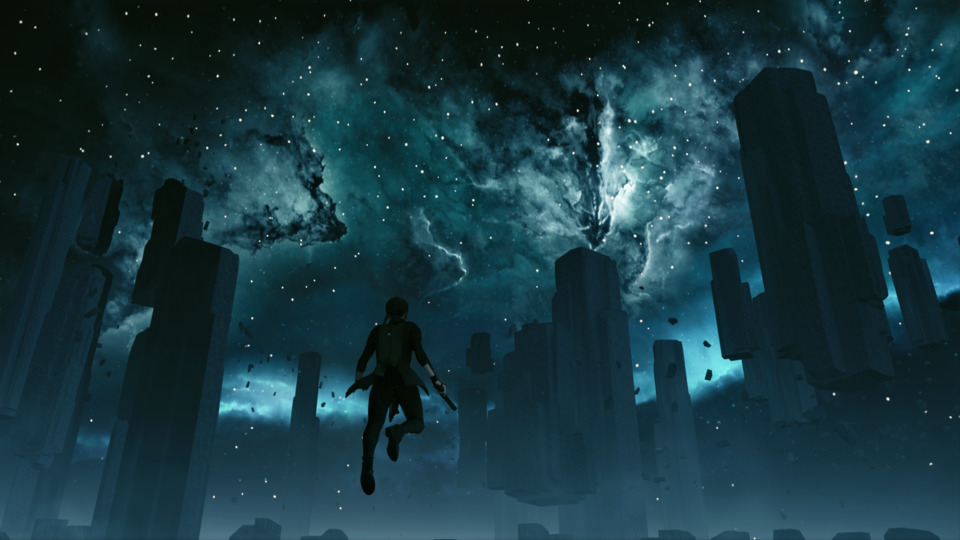
There were certainly parts of Control I got more than my fill of. For a game I initially wanted to explore as much as possible, I eventually kinda gave up on that toward the end and just mainlined the story. Too much of the side stuff involved not-great boss fights and even-less-great checkpointing. I understand why saves are locked to control points, given the Oldest House's metroidvania-like inspiration, but a quick restart button on certain encounters would have gone a long way. Also, I fucked up and played this on a launch PS4. That is not the way this game wants to be played.
But the stuff Control does well? It's magnificent enough that I was able to get past the more frustrating bits and my wheezing hardware. There is a universe here I want to see a great deal more of, and I hope Remedy comes back to it soon.
2. Ape Out
Ape Out is a game about an ape that wants out. Of a lab, of a building, of wherever it happens to be that is not where it wants to be. The ape wants out, but the people do not want to let the ape out. So the people die, horribly.
Ape Out is certainly among the most violent games in the ever growing animal chaos genre. You're not being mischievous, you're straight up murking dudes. As the ape, you really only have two functions: grab, and fling. Grab a guy with a gun and he will fire that gun at another bad guy, while acting as a shield until someone else shoots at you. Throw that guy at another guy or a wall and they will explode in a cloud of blood and limbs and torsos. You can then use those exploded parts to knock their compatriots around. Have you ever beaten a man with his best friend's leg? And if not, can you say you've truly lived?
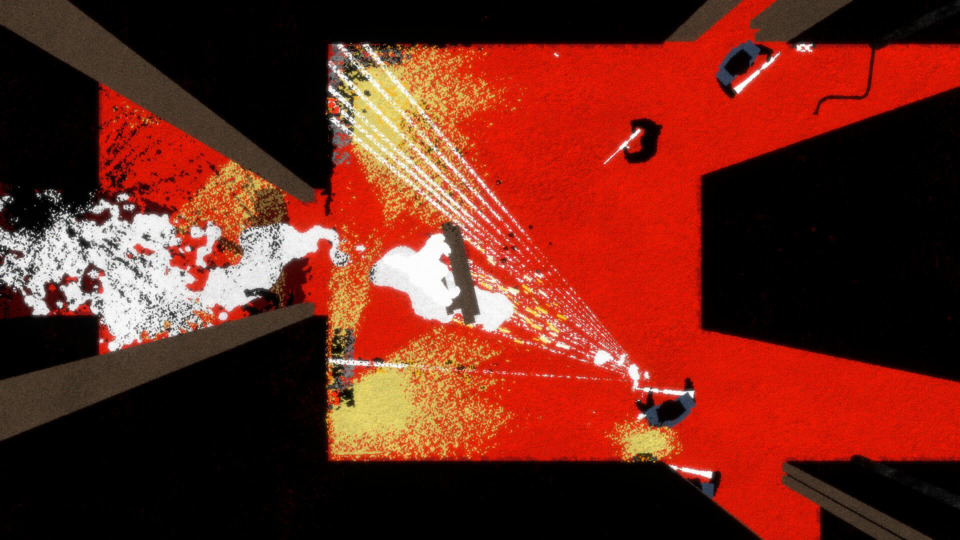
Ape Out is mostly praised for its aesthetics, and it's for good reason. The Saul Bass-flavored art style and relentless jazz drum soundtrack are both flawlessly executed. The soundtrack is especially noteworthy for its sheer weirdness. It's not just clangs and bangs timed with your action. There's a jazz drummer A.I. building up and pulling back the beat to the rhythm of your action. It is extremely cool and also a little unnerving how natural it all sounds. I kept picturing J.K. Simmons yelling at a robot as I played.
Ape Out also deserves praise for its action. It feels good to do the horrible things the ape is doing. It is a challenging game, but one that never feels especially cheap. Successfully getting the ape out feels good. It feels right.
Ape Out is short, brutal, and incredibly effective. It was exactly the kind of thing I needed this year.
1. Judgment
Judgment is not a hugely different game from the Yakuza games it is spun-off from. Especially if you have played Yakuza 6, or Yakuza Kiwami 2, Judgment is going to feel very, very familiar. It certainly did to me. That I am nonetheless here telling you that it is also the game I had the best time with this year, that I spent the most hours playing this year, that it is the game I most wish I could go right back to this year, hopefully does not stretch my credibility. I just liked Judgment a whole bunch.
Though it bills itself as a detective story set within the larger universe of the Yakuza series, Judgment is not really a detective game. What you're playing is a lengthy, gripping crime melodrama in the grand tradition of the Yakuza series. Over the course of that story, you do a lot of the things you do in Yakuza games; you fight roving bands of angry morons, you frequent the various businesses that make up Kamurocho, and you solve the many, many problems of your neighbors.
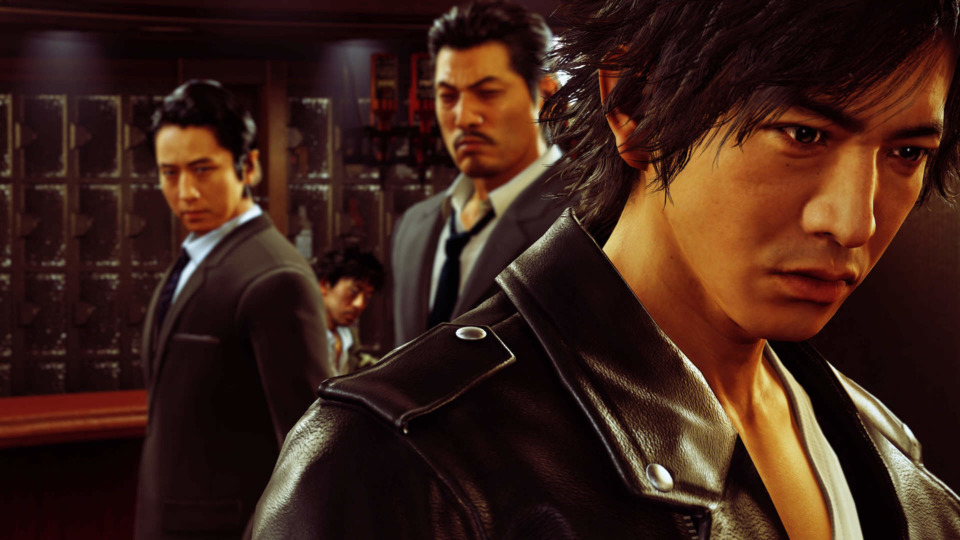
You do these things as Takayuki Yagami, a private detective whose once promising law career is derailed after he scores a rare acquittal for an accused killer. Not long after the trial, his client is accused of killing again, and this sends Yagami away from the law and into the streets of Kamurocho, tailing deadbeats and looking for lost cats along with his ex-Yakuza pal Kaito.
Let's be clear about one thing here: Yagami is not Kiryu. They both have similar penchants toward helping every strange, unruly person that happens to wander past them, and are equally way-too-good at fighting, but they're otherwise different personalities. And that's a good thing. I love Kiryu and his dopey crime dad schtick, but Yagami's the right kind of protagonist for the story they're trying to tell. He's depressed, stressed out, and maybe overcompensating a little bit with the skinny jeans and bike chain wallet. But he's also tenacious, determined, and over the course of the game, you come to understand why so many people trust and respect him.
And the story the developers at Ryu ga Gotoku are telling in Judgment is one of the best stories they've ever put out. The central mystery, which involves the serial murders of low-level Yakuza thugs, an obscure government agency researching an Alzheimer's cure, and political jostling within multiple local crime families, is immensely satisfying from beginning to end. There were definitely times I wished I could have done a bit more detective work as Yagami--most of what you do involves tailing suspects and occasional bits of dialogue choice during interrogations--but it never really bugged me that much. I don't mind that Judgment is a great deal like other Yakuza games because it's so good at doing the Yakuza thing.
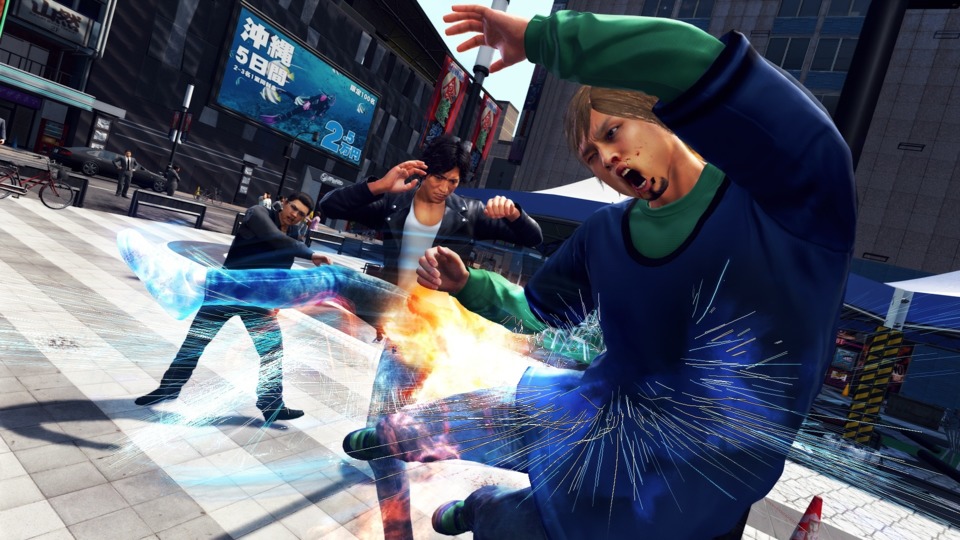
I can't help it, I just love being in Kamurocho. Really, any of the locations this series chooses to render are fun to explore, but Kamurocho in particular has this wonderful, homey feel to it. Dia Lacina talked a bit about this in her review of Judgment, specifically citing how lived-in and familiar the neighborhood feels. As open world games become more and more obsessed with sheer square mileage, Ryu ga Gotoku's focus on inward expansion--building out the neighborhood with more businesses to check out, more people to meet, more life to observe--is more my speed. It doesn't matter how buck wild the personalities of the neighborhood may be, or how bonkers their problems are--this still feels like a place where people live, and I really love helping them, fighting for them, and just existing among them.
If nothing else, Judgment signals that Ryu ga Gotoku can easily branch out beyond the specific kinds of stories they've been telling since the PlayStation 2 era. Granted, Yakuza 7 is looking like its own brand of complete insanity, and without question, I'm very much looking forward to that game making its way stateside. But I'd also be more than happy for further adventures involving the Yagami Detective Agency, or really any other characters the developers see fit to build a game around. Anywhere Ryu ga Gotoku wants to take me, I'm more than happy go, because I know it'll feel like home.